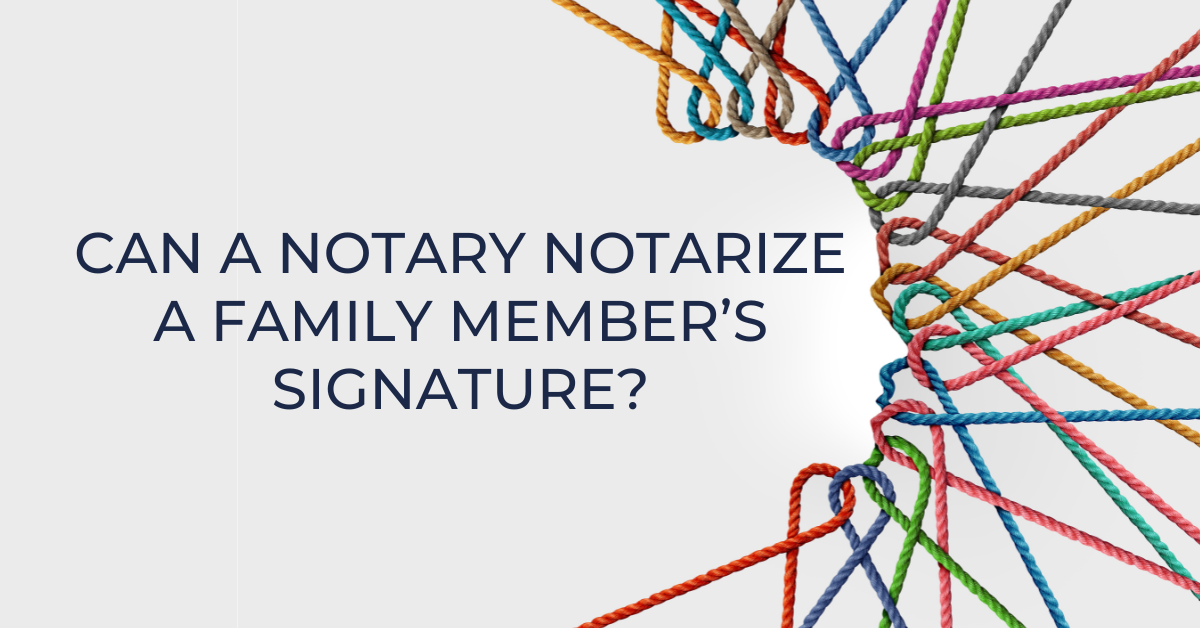Notary Public Underwriters Blog
Can a Notary Notarize a Family Member's Signature?
- Details
- Published: December 16, 2024

Because a notary’s impartiality immediately comes into question, many states place restrictions on notarizing for a family member. (Unless noted otherwise, “family member” means a spouse, immediate family member and relatives.)
These restrictions might be in the notary’s state statutes, or state administrative rules, or in notarization aids provided by the state commissioning official (for example, state-issued notary handbooks, guidelines, and FAQs provided on the commissioning official’s website).
Though the details vary from state to state, most state restrictions on notarizing for family members fall into one of these categories:
- “Avoid ‘Close’ Family Members.” The state official commissioning and/or regulating notaries recommends (sometimes, strongly) that a notary not notarize for a close family member or relative. “Close family member” may not be defined, but it typically means immediate family members (spouses, children, parents, siblings).
- “Okay With Limitations.” State statutes or administrative rules do specify requirements and/or limitations on notarizing for “family members,” but don’t specify which ones. The notary must exercise judgment in assessing whether those requirements or limitations apply to the family member requesting a notarization.
- “Specific Family Members Only.” The notary’s state statutes or administrative rules list the only family members or relatives for whom a notary may notarize. If a particular family member who requests a notarial act isn’t listed in the notary’s statutes or administrative rules, the notary cannot perform the notarization.
Under any of the above scenarios, the notary must assess the circumstances and decide if they will proceed with notarization, or help their relative find a non-related notary. If the notary decides to perform the notarization, the related journal entry should include a notation about any specific statute, rule, or state guideline the notary followed in choosing their course of action.
One final thought… some members of your extended family may be less well-known to you. If you have the slightest doubt about a family member’s legal name compared to the name of the principal signer on the document, ask to see that family member’s ID. They may be surprised, but if you believe you need to see that ID, insist on it.
Related Article(s)
Can I Notarize When the Person Has No ID?
Does a Notary Need to See the Entire Document When Notarizing?
Can I Notarize a Document That Is Already Signed?
How to Assess Signer Awareness or Coercion
Should the Date on the Notarial Certificate Match the Date That the Notarized Document Was Signed?
What Should I Do When There's No Room for My Notary Stamp?
How to Notarize Signatures on Handwritten Documents
Can I Notarize a Document in a Language I Don’t Know?
Can a Notary Change a Document’s Date?

